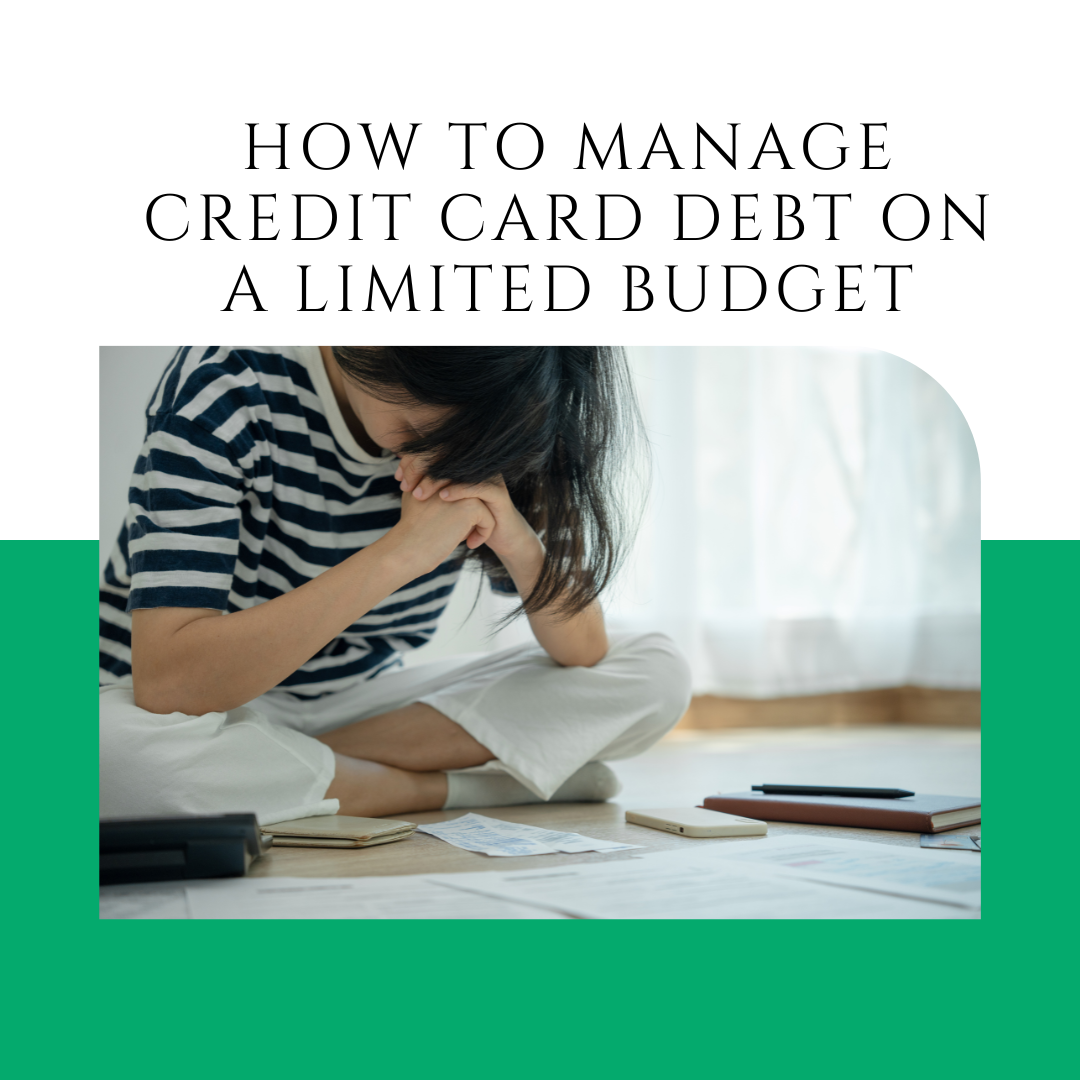How to Manage Credit Card Debt on a Limited Budget
Table of Content
Do you find yourself overwhelmed by credit card debt? Managing your finances when money is tight can be stressful and confusing. But it doesn't have to be. There are strategies you can use to pay off credit card debt on a limited budget. In this guide, we'll cover four essential steps to help you get started: assessing your current situation, exploring payment options, creating a budget, and sticking with your plan.

Assess Your Current Situation
When it comes to credit card debt, understanding and assessing your current situation is key to forming a plan of action. Here are a few steps to give you a better handle on your financial situation.
First, review your current income and expenses, paying particular attention to how much money you are using to pay off your credit card debt versus how much you have leftover to save or use for discretionary purposes. This will give you a better sense of your overall financial standing.
Second, understand your total debt and interest rates. To create a repayment plan, you should know how much you owe on each card, with what interest rate attached to the balance. It is important to note that many credit cards offer introductory interest rates that increase after a designated period of time, so make sure you are aware of the conditions of your cards.
Lastly, calculate your current credit utilization. Knowing the amount you put on your cards each month as a percentage of your credit limit will help you to better understand how you are managing your credit and how it affects your credit score. It will also give you a better indication of how likely you are to be able to pay off your debts and help prevent more debt buildup in the future.
Explore Payment Options
Credit card debt is an ever-growing problem across the world. At times it can feel like your debt is unmanageable, but there are options to help you to manage and reduce this debt.
One of the best ways to reduce your credit card debt is to review your options for debt consolidation. Through debt consolidation you are able to refinance your existing debt into a single loan. This can help immensely in organizing your loans and providing you with manageable repayment terms.
In addition to debt consolidation, you should also examine balance transfer credit cards. This option allows you to transfer multiple debts from previous cards into one card with a lower interest rate. This can reduce the total amount of money paid over the course of the loan significantly.
Finally, you should look into debt settlement or debt management programs. These programs are designed to negotiate a reduced balance or payment plans with creditors. This will help to significantly reduce the amount of debt outstanding and help you to manage your payments more effectively.
In conclusion, there are many options available to help manage your credit card debt. Taking the time to explore all these options is essential in finding a solution that best suits your financial situation.
Develop a Budget
Having a credit card can be a great way to build credit, purchase items and cover unexpected expenses, but becoming overwhelmed with credit card debt can be difficult to overcome. Here are some ways to develop a budget to pay off your debt:
- Create a realistic budget that includes an amount to pay towards your debt each month. Strategies such as the 50/30/20 rule is a great way to make sure you’re setting aside funds for spending, savings and debt payments.
- Utilize technology to your benefit. You can set up automatic payments to your credit cards so you never miss a payment and avoid late fees. Notifications can be sent via email or text when a payment is due.
- If you find yourself struggling with how to pay off your credit card debt, try to come up with ways to increase your income. You can look for additional job opportunities, start a side hustle or sell items you don’t need. Whatever it is, doing something to bring in additional income will help you pay off your debt faster.
Stick to the Plan
Financial responsibility is vital, and understanding credit card debt is important. It's easy to overspend when using a credit card, and before you know it, your debt can increase. The key to managing debt successfully is to stick to the plan. Here are some tips that may help you do just that:
Keep track of your progress. Monitoring your debt gives you a sense of accomplishment and gives you motivation to stay on track. Reviewing your balance and how it changes over time can also help you stay on top of your goals.
Check your credit report often to monitor your debt. This can help ensure you’re paying off your debt in a timely manner. A credit report can also show you any delinquencies, making it easier to make sure your accounts are in good standing.
Find ways to stay motivated. Set aside a small amount of money each month to reward yourself for reaching debt reduction milestones. This could help keep you motivated to stay on track and create a sound financial future for yourself.
Conclusions
Managing credit card debt on a limited budget isn't easy, but it can be done. Remember to assess your current situation, consider payment options, create a realistic budget, and stay motivated. With some hard work and determination, you can take control of your credit card debt while saving money in the long run.
This blog was generated with help of DelyAI.com - AI content generator.
Hi, I'm Martins!
I'm building different web apps to help developers, freelancers, and companies to be more efficient and successful.
